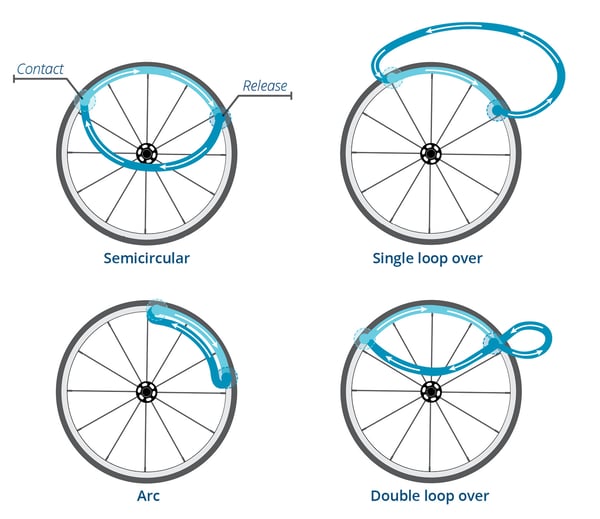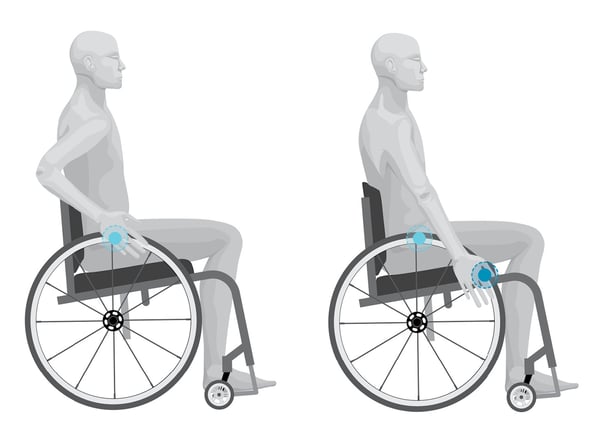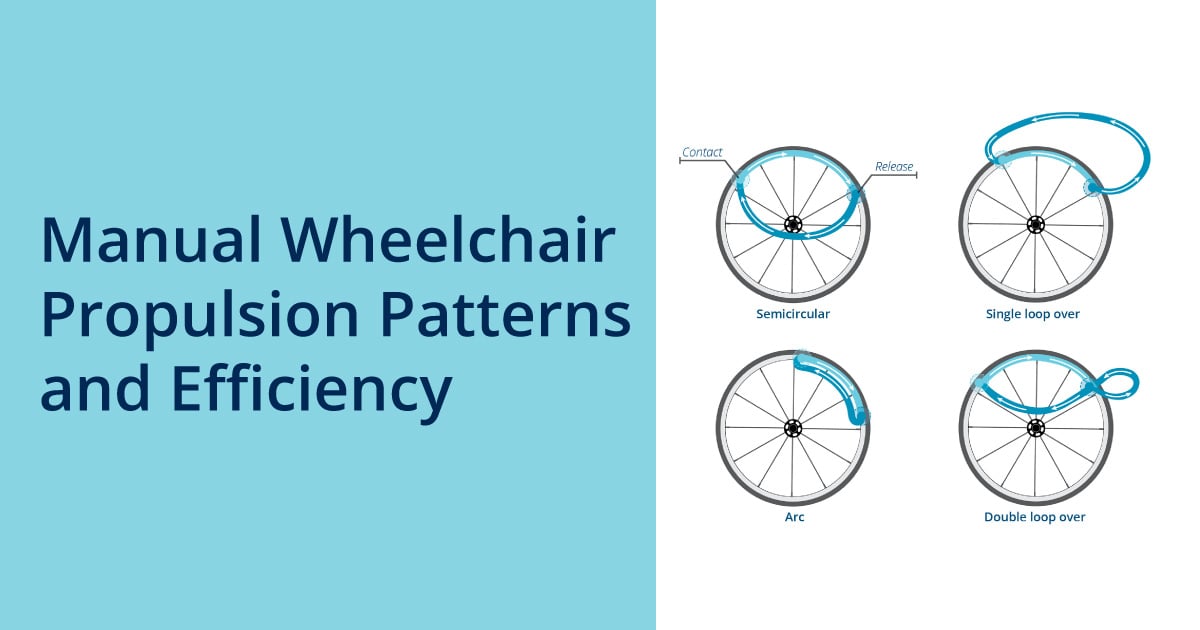In our manual wheelchair guide blog series, we've discussed a number of topics concerning manual wheelchairs. Today's topic is manual wheelchair propulsion patterns and efficiency.
Propulsion Patterns
There are four push stroke techniques consisting of a push phase and a recovery phase. The pattern of recovery (release to contact) is the largest difference between techniques.

The semicircular pattern is encouraged because:
- It promotes better biomechanics
- It is associated with lower stroke frequency
- It promotes more time in push phase than recovery phase
- The hand follows an elliptical pattern with no quick changes in direction and no extra hand movements
Propulsion Efficiency
A forward axle position allows for longer, smooth push strokes which will also decrease frequency of pushes.
Forward axle - Distance between contact & release

A rearward axle position reduces the user's ability to get a long stroke since they are starting the push phase near the front of the rear wheel.
Rearward axle - Distance between contact & release

 Stacey Mullis, OTR/ATP
Stacey Mullis, OTR/ATP
Director of Clinical Marketing
Stacey serves as Director of Clinical Marketing for Permobil. A practicing OTR for over 20 years, she has experience in school-based pediatrics, inpatient rehabilitation, long term care, and home health. With her interest in wheelchair seating and positioning, Stacey engaged the challenges of providing appropriate seating in various clinical settings. She now uses this experience to develop programs and resources to educate clinicians on the principles of seating and wheeled mobility. She is passionate about equipping clinicians and through her previous role as Director of Clinical Education with Comfort Company and now with Permobil she has taught nationally and internationally to increase therapist capacity in this specialty area. Mullis graduated from Western University in London, Ontario, Canada with a BA Linguistics and BSc Occupational Therapy. She is a member of the NCOTA, CTF Executive Board, NRRTs, RESNA, and AOTA.
 Ginger Walls, PT, MS, NCS, ATP/SMS
Ginger Walls, PT, MS, NCS, ATP/SMS
Director of Clinical Sales and Education
Ginger has 25 years of experience as a physical therapist in the area of neuro rehab and wheelchair seating/mobility. She directed the Outpatient therapy clinics and the Seating/Mobility Program at Medstar National Rehabilitation Hospital in Washington, D.C. Additionally, Ginger has provided a variety of continuing education courses and lectures in the area of seating/mobility for many years. She has presented at major industry conferences including ISS, RESNA, and the PVA Summit. Ginger took on the role of Clinical Education Specialist for Permobil in 2015 and was appointed Director of Clinical Sales and Education in 2020.
